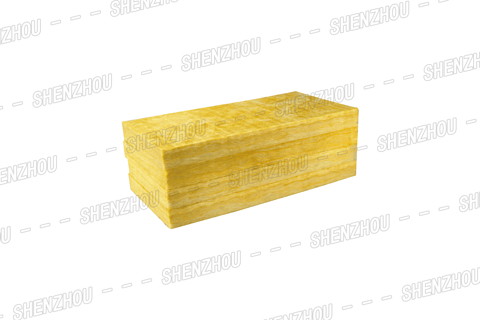
what is rockwool insulation made of?
7/5/20246 min read

Rockwool insulation, as a popular building material, has been widely used in various construction projects for its exceptional thermal and acoustical properties. Its unique composition and manufacturing process contribute significantly to its performance and durability. Let's delve deeper into what rockwool insulation is made of and how it is manufactured.
At its core, rockwool insulation is primarily composed of volcanic rock, a natural resource that is abundant in many parts of the world. The volcanic rock, which is rich in minerals like silica, alumina, and iron oxide, is the starting point for the production of rockwool.
The manufacturing process begins with the careful selection and crushing of the volcanic rock into small particles. These particles are then mixed with a binder, usually a water-based solution containing additives that enhance the adhesive properties of the mixture. The resulting slurry is then fed into a high-temperature furnace, where it undergoes a rapid spinning process.
Inside the furnace, the mixture is exposed to temperatures of over 1600°C, which causes the rock particles to melt and fuse together. As the mixture is spun out of the furnace through a series of small orifices, it cools rapidly, forming long, thin fibers. These fibers, resembling wool, are what constitute the bulk of rockwool insulation.
Once the fibers are formed, they are collected and processed further to achieve the desired density, texture, and shape. This can involve compressing the fibers into blocks, rolls, or sheets, depending on the intended application. The compression process not only gives the insulation its characteristic structure but also enhances its strength and durability.
What sets rockwool insulation apart from other building materials is its exceptional thermal and acoustical properties. The dense, fibrous structure of the material acts as an effective barrier to heat transfer, making it an excellent insulator. At the same time, the fibers trap and absorb sound waves, reducing noise transmission through walls and ceilings.
In addition to its thermal and acoustical properties, rockwool insulation is also non-combustible and resistant to mold, mildew, and vermin infestation. It does not release harmful gases or toxins, making it a safe and environmentally friendly choice for building applications.
Categories
Popular
Applications of Glass Wool Board:
Interior Wall Compartments:
Enhances the functionality and aesthetics of interior spaces.
Ceiling Systems:
Provides effective insulation for ceilings, contributing to energy efficiency.
Insulation of Iron Sheet Air Ducts or Bellows:
Ideal for insulating ductwork, ensuring thermal efficiency.
Sound Absorption and Noise Reduction:
Reduces noise levels in machine rooms, creating a quieter working environment.
Exterior Wall Insulation:
Offers insulation for residential building exteriors, contributing to energy savings.
Glass Wool Insulation





Moreover, rockwool insulation is highly versatile and can be used in a wide range of construction projects. It is commonly found in residential buildings, commercial structures, and industrial facilities, where it is used for wall insulation, roof insulation, floor insulation, and soundproofing. Its durability and long-lasting performance ensure that it remains effective for decades, providing significant energy savings and improved comfort for building occupants.
However, it's worth noting that the manufacture of rockwool insulation can be energy-intensive and requires careful handling of the raw materials and waste products. Manufacturers must adhere to strict environmental regulations to ensure that the production process is sustainable and environmentally responsible.
In conclusion, rockwool insulation is a unique and versatile building material that is primarily composed of volcanic rock. Its exceptional thermal and acoustical properties, along with its durability and environmental friendliness, make it a popular choice for insulation and soundproofing applications in various construction projects.
Shenzhou Energy Saving Technology Group Co., Ltd. is an energy saving and environmental protection enterprise integrating research and development, manufacturing and service of thermal insulation and sound absorption and noise reduction materials. The Group has six subsidiaries and ten industrial parks, producing five main series of products of rubber foam, glass wool, ceramic wool, sound absorption and noise reduction materials, and rock wool. Its products are widely used in construction, central air conditioning, refrigerator refrigeration, petrochemical, Marine locomotive, aerospace, thermal power, sound-absorbing noise reduction, and other industries.
After more than 40 years of exploration and sharpening, Shenzhou Group has become a leading manufacturer in the heat insulation and energy saving industry . The group covers an area of 1.06 million square meters, including a construction area of 680,000 square meters. Euipped with internationally advanced production equipment and technology, Shenzhou’s annual production volume of rubber foam is 2.6 million m³, glass wool 230,000 tons, rock wool 120,000 tons, and ceramic wool 28,000 tons. While solving the employment issue of more than 2,000 people, Shenzhou also created considerable economic and social benefits.

Why Choose SHENZHOU Glass Wool Board?
SHENZHOU® Glass Wool Board not only meets the essential requirements of thermal insulation but also excels in sound absorption and noise reduction. Its adaptability to various settings, coupled with the convenience of construction and installation, positions it as a leading choice for architects, builders, and contractors.
In conclusion, the broad application prospects of SHENZHOU® Glass Wool Board make it a comprehensive solution for enhancing comfort, energy efficiency, and acoustic performance across diverse projects. Choose SHENZHOU® for insulation solutions that go beyond expectations.










About Us
Click the button below to get more information about us
Newsletter
Click to subscribe for more information
Follow Us
Contact Us
Address
Dacheng town, Langfang City, Hebei province, China
Phone
+86 185 03165 626


